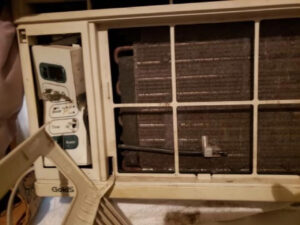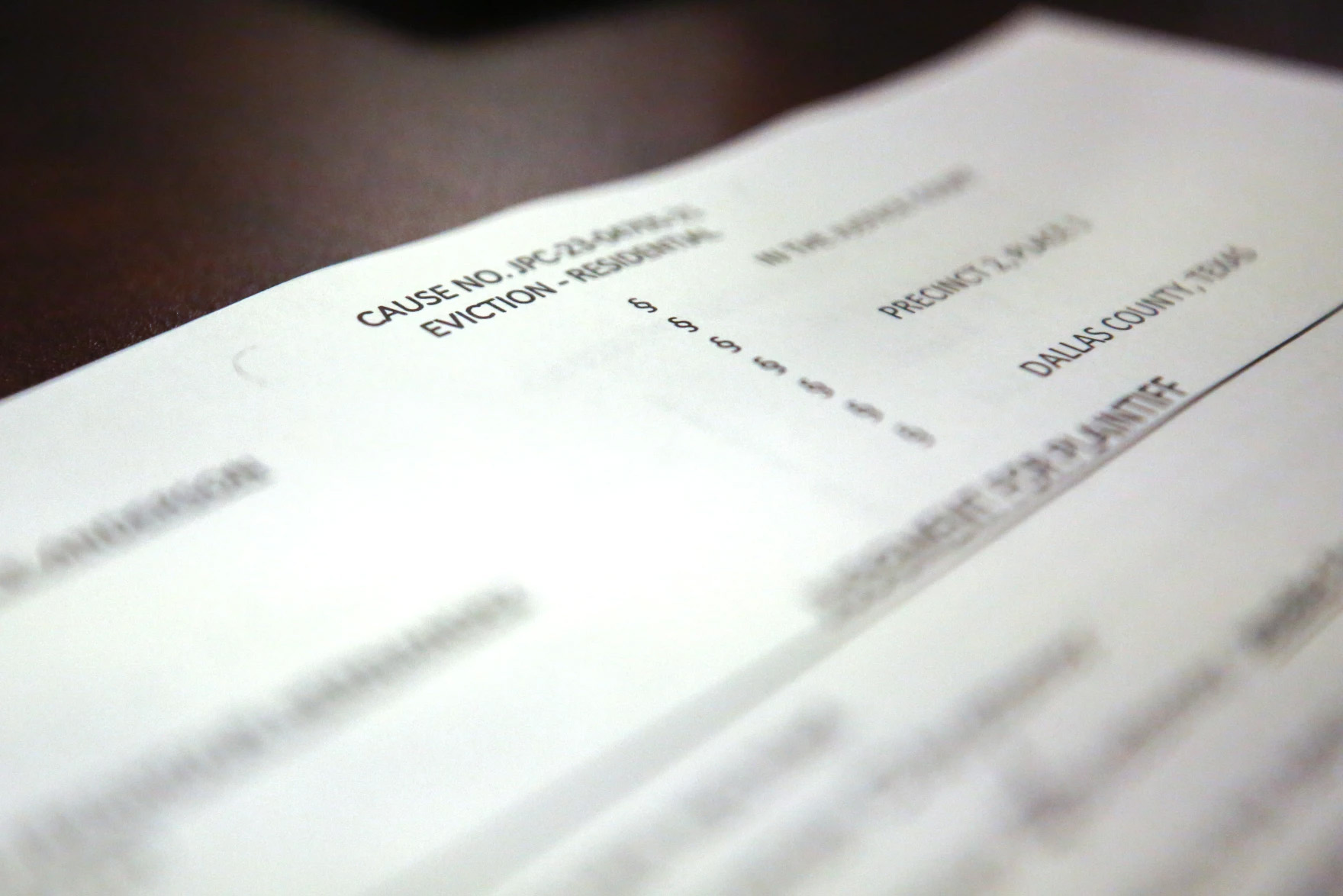From KERA News:
Earlier this summer, Nicole Hernandez said she came home to the room she rented in Garland to find the door kicked in and her window air conditioner unit smashed.
Her landlord had just taken her to court to evict her. The judge gave Hernandez about a week to appeal or to pack and leave before the constables showed up. But Hernandez said her landlord was trying to make it unbearable to stay another day.
Temperatures that week were over 100 degrees. She drenched herself in water to keep cool while she tried to figure out what to do.
“It felt like my head was just tight. My temples were hurting and my head, it was just so swelled up,” Hernandez said. “The heat was making me very sick.”
Hernandez said this was the latest in a months-long string of harassment aimed at forcing her out.
Eviction is a formal, legal process, and Texas law outlines the process and timing for delivering notices, filing a case in court, and administering the trial. Nonetheless, tenants’ rights groups say landlords often go to extreme measures to push their tenants out of their homes.
“They want to make it as miserable as possible for that tenant to stay so that they’ll leave voluntarily so that they don’t have to go through the trouble of filing an eviction and waiting the time to get them out,” said Mark Melton from the Dallas Eviction Advocacy Center.

Nicole Hernandez said she arrived home on July 11, 2023, after her eviction hearing to find her air conditioner smashed. Temperatures topped 100 degrees that week.
Courtesy of Nicole Hernandez
Texas offers fewer tenant protections than many other states, and evictions play out more quickly here than in many other places, Melton said. But sometimes landlords use hardball — often illegal —tactics to force out tenants instead.
At times, these tactics are deployed at the same time a formal eviction is being pursued.
Melton said it’s not uncommon to hear from clients whose landlords illegally shut off their air conditioning or electricity, or towed tenants’ cars when they fall behind on rent.
“I’m not … telling you the things that are happening are true across the board in every apartment complex in Dallas, because they’re not. But there is a significant portion [of places], primarily around people that are poor, where they are just being abused day in and day out with no recourse,” Melton said.
Some cases are more extreme: Melton described a case where a landlord put nails into two by fours and placed them in the front of the driveway in the dark to pop the tenant’s tires when they pulled in.
In another case, he said a landlord hired local gang members to intimidate a 20-year-old single mother to scare her into leaving.
“There’s always going to be folks … that will do things that are way outside the bounds, and they really should not be in this business at all,” said Jason Simon from the Apartment Association of Greater Dallas, whose members are landlords and property managers in Dallas and surrounding counties.
Simon said most of his organization’s members want to provide safe and habitable housing and to follow the law. But he said he does hear about bad actors like this. He thinks they’re most common in small-scale rental situations outside of the professional rental industry — like when someone rents a room in their home to someone they know.
A chicken and a duck
For Hernandez, the eviction case and her smashed air conditioner came several months after her landlord first threatened to evict her.
The landlord didn’t respond to requests for comment.
Hernandez said she had worked for her landlord’s home health agency before moving into the house in Garland in September 2022. She rented an upstairs bedroom for $700 per month, sharing the house with the landlord’s son and his fiancé.
Hernandez had been struggling, she said, living out of her SUV. She’d sent her kids to live with family out of town. She hoped the new arrangement would give her the stability she needed to get her life together and be able to move her kids back in with her this summer. She started working at PetSmart to train as a pet groomer.
In January, Hernandez agreed to take care of her landlord’s pets while she was out of town – three dogs, a duck, and a chicken. When she arrived at the landlord’s home, Hernandez said she found the chicken dead and the duck was nowhere to be found.
The landlord was furious, Hernandez said.
“She was telling me I needed to get out, that that was her only duck. And it just kind of got bizarre after that,” Hernandez said. “So, yeah, it’s kind of insane.”
Hernandez said she was fired from the home health business, and her landlord slipped a notice under her bedroom door saying she was to be evicted.















